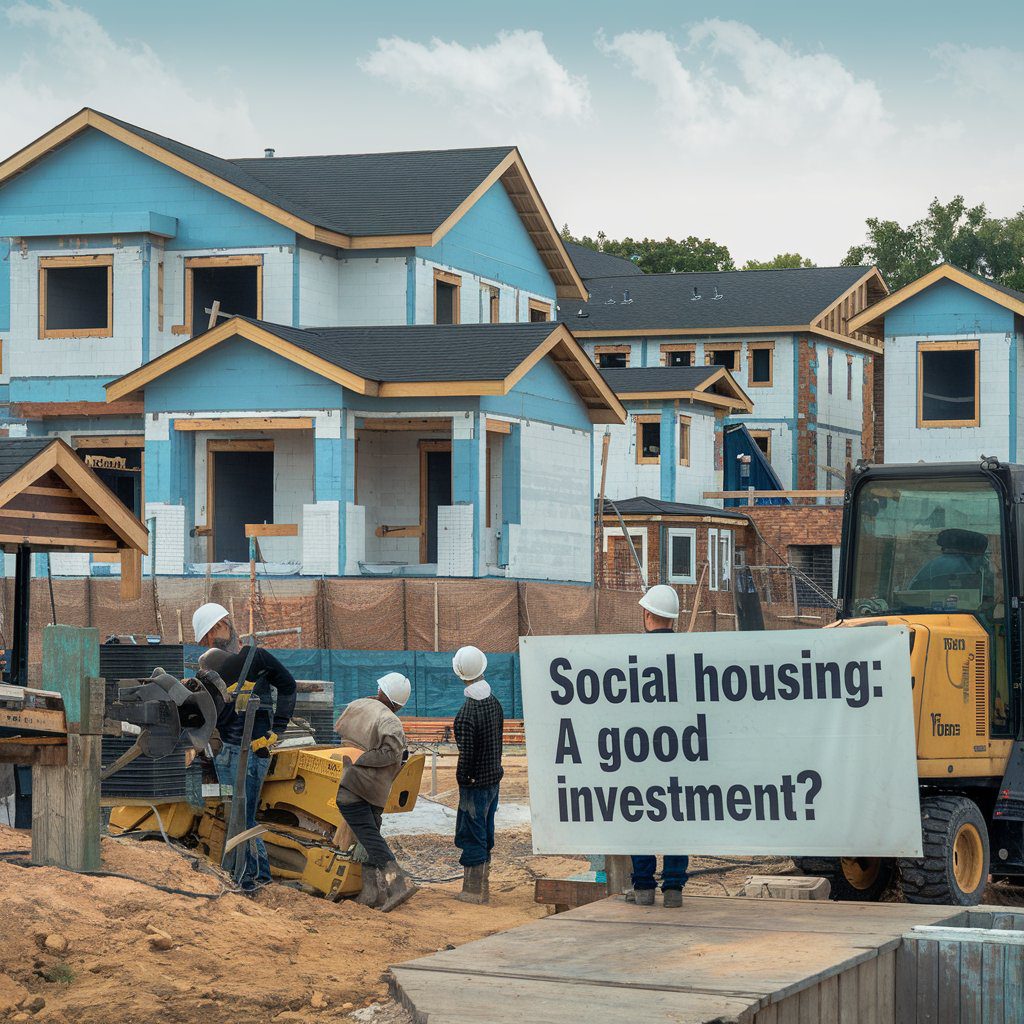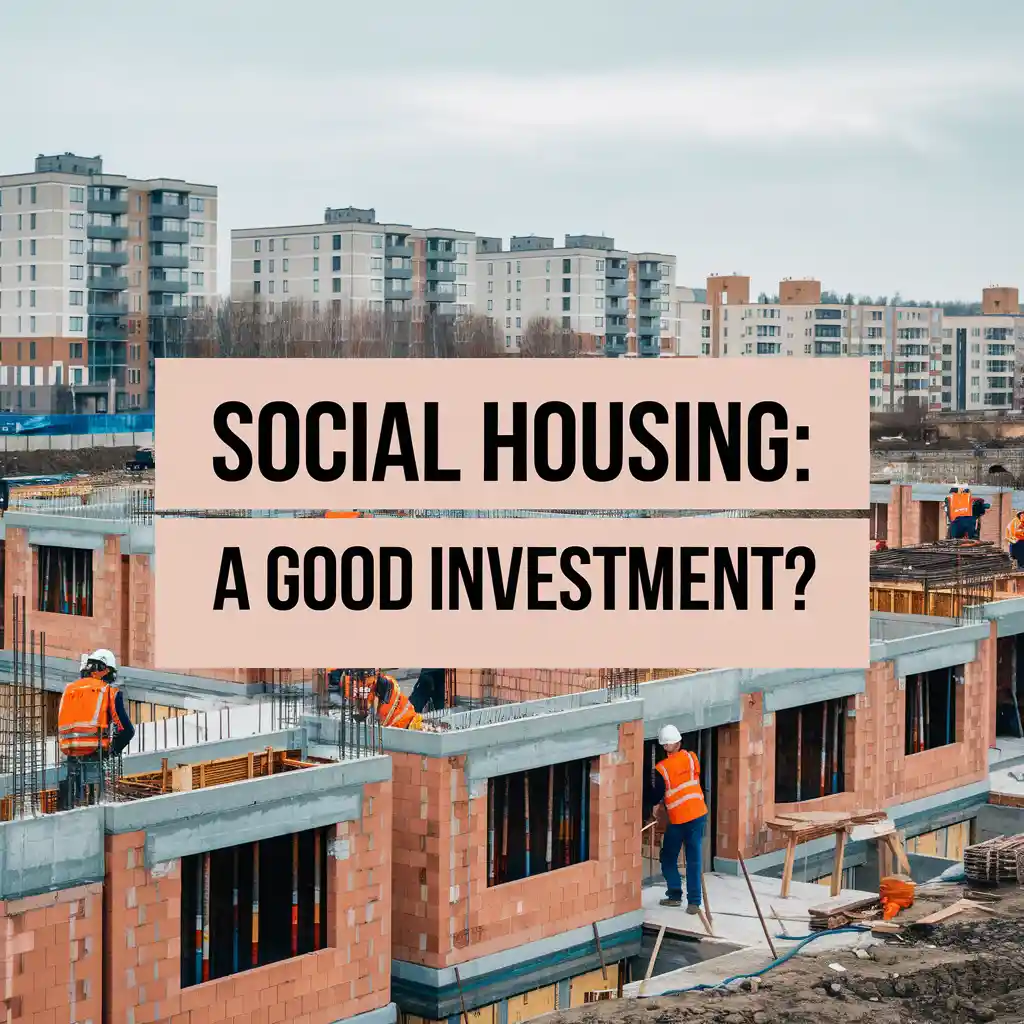In recent years, social housing investment has emerged as an attractive option for investors seeking stable returns while making a positive social impact. This comprehensive guide explores the various aspects of social housing investment, providing valuable insights for both novice and experienced investors.
Introduction
Social housing investment represents a unique intersection of financial opportunity and social responsibility. As Rachel Buscall, CEO of New Capital Link, aptly says, “Investing in social housing is not just about returns; it’s about building stronger communities and creating a more equitable society. It’s an investment in our collective future.”
What is Social Housing?
Social housing refers to rental properties owned and managed by local councils, housing associations, or other non-profit organizations. These properties are designed to provide affordable accommodation to individuals and families who may struggle to rent or buy in the private market. Social housing plays a crucial role in addressing housing shortages and promoting social equality.
Why Do People Invest in Social Housing?
Investors are drawn to social housing for several compelling reasons. Firstly, it often provides consistent, long-term returns, offering a level of stability that’s highly valued in today’s volatile market. Secondly, the sector benefits from various forms of government backing and funding, which adds an extra layer of security. Moreover, investors can contribute to addressing critical housing needs in communities, aligning their financial goals with social impact. Lastly, social housing offers a unique asset class to balance investment portfolios, providing diversification benefits.
What Are the Benefits of Social Housing Investment?
The benefits of social housing investment are numerous and significant. Government-backed rental income ensures stable cash flows, while typical lease periods of 5 to 20 years provide predictable returns. High demand and long-term tenancies reduce vacancy risks, leading to low void periods. Many social housing agreements include inflation-linked rent reviews, offering a hedge against inflation. Additionally, investments in this sector can significantly boost local and national economies, creating a ripple effect of positive impact.

What Are the Disadvantages?
While social housing investment is attractive, it’s important to consider potential drawbacks. Changes in government policies could impact the sector, introducing an element of policy risk. Investors may have restricted options in terms of property locations, which could limit geographical diversification. The sector is subject to increasing regulatory scrutiny, which, while ensuring ethical practices, can also introduce compliance challenges. Lastly, substantial upfront investment may be necessary, which could be a barrier for some investors.
Example of a Social Housing Investment
To illustrate, consider a hypothetical investment in a 50-unit social housing development. With an initial investment of £5 million, it might generate an annual rental income of £400,000 through a 15-year lease with a housing association. Such an investment could potentially yield an expected return of 8% per annum, providing stable, long-term income while addressing local housing needs.
Are Social Housing Investments Considered Ethical?
Social housing investments are generally viewed as ethical investments. They contribute to solving housing crises, support vulnerable populations, and often incorporate sustainable building practices. However, investors should conduct due diligence to ensure their investments align with their ethical standards.
What Are Average Returns on Social Housing?
When it comes to returns, social housing investments have shown promising results. According to HSBC’s 2019 report, they have delivered average returns of 8.4% on equity, with an average rent growth of 6.8%. However, it’s important to note that returns can vary based on factors such as location, property type, and specific investment structure.
Facts About Social Housing Investments
The potential economic impact of social housing investment is substantial. Research suggests that investing in social housing could add over £50 billion to the UK economy.
Initial government funding for social homes could be fully repaid in just 11 years, demonstrating the efficiency of such investments.
Currently, Social Housing REITs hold around £2 billion in social housing assets, indicating a growing market.
Furthermore, building 90,000 social homes annually could support nearly 140,000 jobs in the first year alone, showcasing the sector’s potential for job creation.
FAQs About Social Housing Investment
Social Housing Investment FAQ
Q: How can individual investors access social housing investments? A: Individual investors can access social housing investments through:
- Companies like New Capital Link via property bonds
- Investing in Social Housing REITs (Real Estate Investment Trusts)
Q: What is the minimum investment required? A: The minimum investment varies depending on the investment vehicle:
- Some platforms allow investments starting from a few hundred pounds
- Others may require larger sums
Q: How liquid are social housing investments? A: Liquidity can vary:
- REITs offer more liquidity as they’re traded on stock exchanges
- Direct property investments may be less liquid
Q: What are the key risks associated with social housing investments? A: Key risks include:
- Policy changes
- Regulatory scrutiny
- Potential changes in government funding for social housing
Q: How does social housing investment compare to traditional real estate investment? A: Compared to traditional real estate investment, social housing typically offers:
Potentially lower capital appreciation potential
More stable, long-term returns
Lower vacancy risks
Alternative Investments London
At New Capital Link, we specialise in connecting investors with unique opportunities in the alternative investment space, including social housing. Our team of experts, led by CEO Rachel Buscall, is committed to helping you navigate the complexities of social housing investment and other alternative asset classes. We believe that informed investors make better decisions. That’s why we provide comprehensive guidance, market insights, and personalised support to ensure your investment aligns with your financial goals and values. To learn more about how New Capital Link can help you explore social housing investments and other alternative investment opportunities, contact us today. Together, we can build a portfolio that delivers returns while making a positive impact on society.






